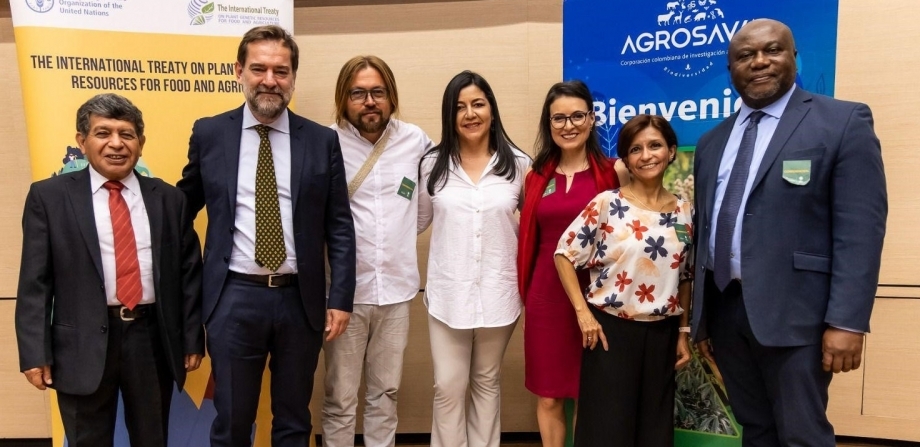
Colombia is 153rd Country to Ratify International Treaty on Plant Genetic Resources for Food and Agriculture
October 30, 2024| |
On October 22, 2024, a special event was held at the Sixteenth meeting of the Conference of the Parties to the United Nations Convention of Biological Diversity (CBD COP16) in Cali to celebrate Colombia's ratification of the International Treaty on Plant Genetic Resources for Food and Agriculture.
The Republic of Colombia has deposited its instrument of ratification of the International Treaty on Plant Genetic Resources for Food and Agriculture with the Director-General of the Food and Agriculture Organization of the United Nations, and will become the 153rd Contracting Party.
“I warmly welcome Colombia to the Plant Treaty family. This is a significant milestone not only for Colombia but for FAO and the entire global community. By ratifying the International Treaty, Colombia strengthens its international commitment towards the conservation of biodiversity and can implement a new policy and legal framework to sustainably use the crop genetic resources that form the basis of the world's basket, and which are indispensable for achieving global food security and climate resilience,” said Kent Nnadozie, Secretary of the International Treaty.
As a Contracting Party, Colombia gains access to the International Treaty's Multilateral System of Access and Benefit-sharing, currently the largest global exchange mechanism of plant genetic resources for food and agriculture in the world, providing access to over 2.4 million unique PGRFA accessions. In addition, Colombia will qualify to apply for grants under the International Treaty's Benefit-sharing Fund, which has supported 108 projects in 78 developing countries, benefitting over 1 million people, to date.
For more details, read the article in the FAO website.
| |
You might also like:
- Global Seed Vault Founders Named 2024 World Food Prize Laureates
- Doomsday Seed Vault Opens Doors to the World as it Turns 15
- International Treaty on Plant Genetic Resources for Food and Agriculture Turns 15
Biotech Updates is a weekly newsletter of ISAAA, a not-for-profit organization. It is distributed for free to over 22,000 subscribers worldwide to inform them about the key developments in biosciences, especially in biotechnology. Your support will help us in our mission to feed the world with knowledge. You can help by donating as little as $10.
-
See more articles:
-
Plant
- USDA APHIS Releases Regulatory Status Review for Modified Sweet Orange and Maize
- Ban on GM Corn Could Exacerbate Food Insecurity and Job Loss in Mexico
- Researchers Develop Tomato Plants that Contain Full Genetic Material of Both Parent Plants
-
Food
- EFSA GMO Panel Finds No Safety Concerns with the Food Enzyme Carboxypeptidase C from GM Aspergillus Niger
-
Environment
- USDA, EPA, and FDA Launch New Web-Based Tool for Developers of Microbial Biotechnology Products
- CBD Urges Nations to Shift to Emergency Mode to Achieve Biodiversity Targets
- Colombia is 153rd Country to Ratify International Treaty on Plant Genetic Resources for Food and Agriculture
- Contributions of Biotech Crops to Food Security, Sustainability, and Climate Change Solutions
-
Read the latest: - Biotech Updates (February 18, 2026)
- Gene Editing Supplement (January 28, 2026)
- Gene Drive Supplement (February 22, 2023)
-
Subscribe to BU: - Share
- Tweet

